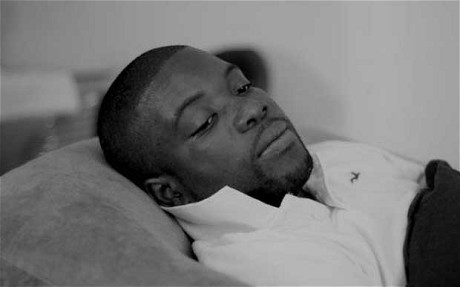How much did UBS know about Kweku Adoboli’s trades?
September 15th, 2011
So after Nick Leeson and Jerôme Kerviel, it seems that another ‘rogue’ trader is about to enter the annals of banking infamy. This time it’s the turn of the Nottingham University-educated market maker, Kweku Adoboli.
Adoboli, a 31-year old trader in the bank’s City of London-based exchange-traded funds business, was arrested on Thursday morning, according to the Financial Times. He allegedly caused $2bn of losses at the Zurich-based bank’s ‘Delta One’ unit.
Police confirmed they arrested a 31-year-old man in central London at 3.30am on Thursday morning, under suspicion of fraud by abusive position. They said the man is currently being remanded in custody. They did not name the individual concerned.
The scandal suggests UBS was paying far too much attention to what its staff wear and eat — last year it introduced a new dress code instructing male staff to have a haircut every month and female staff to wear flesh-coloured knickers, and banned the eating garlic and onions — and not enough to what its traders were getting up to. Here’s what Tyler Durden at Zerohedge had to say about it:-
“The trade in question that resulted in the $2 billion loss and forced the arrest of the trader is unknown but very much irrelevant: he was over his risk profile and nobody had stopped him: this reflects very badly on UBS.”
The FT added that:-
“The revelation is also likely to reinforce calls from some investors and many Swiss politicians for a downgrading – or even outright closure – of UBS’s investment banking activities. Ironically, the announcement came on the day the lower house of the Swiss parliament was debating amendments to the country’s banking laws to reduce the risks from groups viewed as “too big to fail”.”
I think the revelation will also fuel calls for the UK government to stop dragging its heels on erecting a ringfence between banks’ investment banking (or “casino”) arms and their retail divisions, to ensure the former are no longer eligible for taxpayer funded bailouts.
(And, yes, even though the bulk of the losses that caused the near-demise of RBS, HBOS and Northern Rock related to commercial property lending and the funding of leveraged buyouts (in the case of the former two banks), and reckless mortgage lending (in the case of the latter) in conjunction with a lopsided and over-leveraged business model that was too reliant on wholesale funding — the calls are legitimate!).
It is interesting to note that Adoboli’s boss, John Hughes, has resigned from UBS. I wonder how aware Hughes was of Adoboli’s activities? This made me think of the trial of Jerôme Kerviel last year. This is what I wrote at the time (before Kerviel was convicted and sentenced):-
The case hinges on whether Kerviel could have acted autonomously when concocting trades that lost his employer Société Generale €4.9 billion in January 2008, as the bank claims, or whether his superiors were aware of his every move — as he has claimed in his book L’Engrenage: Mémoires d’un Trader (The Spiral: Memories of a Trader).
One suspects that, in keeping with what happened at many banks, Kerviel, 33, was encouraged to engage in ever more reckless gambling so long as he made a profit. Then when the plan turned sour, management sought to cover their own backs by claiming his trades were ‘unauthorized’ and blaming the whole thing on him.
According to WallStreetOasis.com, investment banks’ Delta One units are normally responsible for the trading of
“Any synthetic security that has a delta of one (delta = 1 indicates a movement in line with the underlying) so they deal with non-options securities like ETFs, forwards, futures, equity swaps, etc. These desks will create custom baskets/portfolios for clients that allow them to hedge very specific things. Suppose you want to hedge against the semiconductor industry … you could short an ETF or something. But if you owned one of the stocks in the ETF, you’d be eliminating the alpha from your long security. So these delta desks will create synthetic securities, which are trackable online. They create Bloomberg listings for them so you can track them in your portfolio.”
Now, why did this definition make me think back to remarks made by Larry Kotlikoff in April 2011. That month the Boston University professor told a gathering of investment and pensions experts in Holland that, despite the collapse of 2007-08, the global financial markets remain a massive Ponzi scheme that could collapse at any time?
Yves Kaufmann, a UBS spokesman, has declined to say where the unidentified trader was based, or whether UBS has pressed criminal charges against its employee.
I am also interested to note that, on his Facebook page (now suspended), Adoboli lists dub artist MC Xander — renowned for making an extraordinary range of noises using his mouth alone — as one of his favourite musicians. Kweku’s Facebook page shows he has 419 friends, several of whom work for UBS.
Note: There’s more on alleged ‘rogue’ trader, including references to his past, in this Financial News article. “Meet UBS ‘rogue’ trader Kweku Adoboli”
See also my later blog post “Ex-UBS trader says Swiss bank was probably trying to cover up its losses“
In March 2011 I wrote an article saying exchange-traded funds were an accident waiting to happen.
Short URL: https://www.ianfraser.org/?p=4767


[…] Ian Fraser: How much did UBS know about Kweku Adoboli’s trades? […]